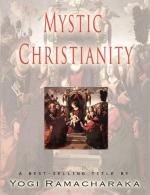St. Clement, in the same work from which the above quotation was taken, has a chapter entitled “The Mysteries of the Faith, not to be Divulged to all.” In it he states that inasmuch as his writings might be seen by all men, the unwise as well as the wise, “it is requisite, therefore, to hide in a Mystery the wisdom spoken, in which the Son of God is taught.” He then adds, “For it is difficult to exhibit the really pure and transparent words to swinish and untrained hearers. For scarcely could anything which they could bear be more ludicrous than these to the multitude; nor any subjects on the other hand more admirable or more inspiring to those of noble nature. But the wise do not utter with their mouths what they reason in council. ’But what ye hear in the ear,’ said the Lord, ’proclaim upon the houses; bidding them receive the secret traditions of the true knowledge, and expound them aloft and conspicuously; and as we have said in the ear, so to deliver them to whom it is requisite; but not enjoining us to communicate to all without distinction what is said to them in parables. But there is only a delineation in the memoranda, which have the truth sown sparse and broadcast, that it may escape the notice of those who pick up seeds like jackdaws; but when they find a good husbandman, each of them will germinate and will produce corn.”
“Those who are still blind and dumb, not having understanding, or the undazzled and keen vision of the contemplative soul, must stand outside of the divine choir. Wherefore, in accordance with the method of concealment, the truly sacred Word, truly divine and most necessary for us, deposited in the shrine of truth, was by the Egyptians indicated by what were called among them adyta, and by the Hebrews ‘the veil.’ Only the consecrated were allowed access to them. For Plato also thought it not lawful for ‘the impure to touch the pure.’ Thence the prophecies and oracles are spoken in enigmas, and to the untrained and uninstructed people. Now, then, it is not wished that all things should




